


 "Exporting Japanese
"Exporting Japanese
industrial parks"
Boosting economic growth in other countries by helping Japanese companies set up operations there.
Industrial parks in Vietnam and Indonesia serve as ideal overseas business bases for corporate managements with the "can-do" spirit.

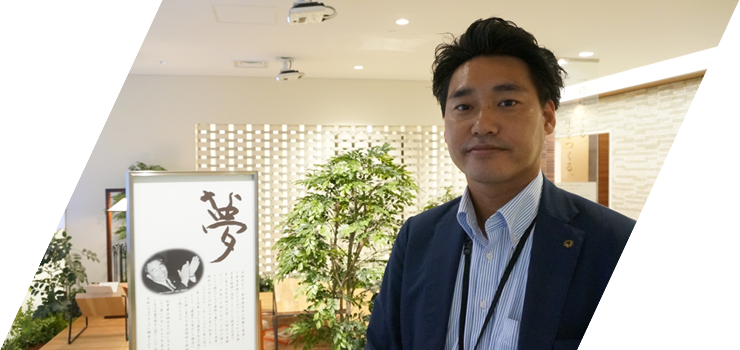
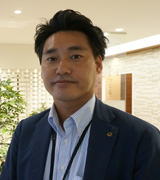
![]()
![]()
![]()

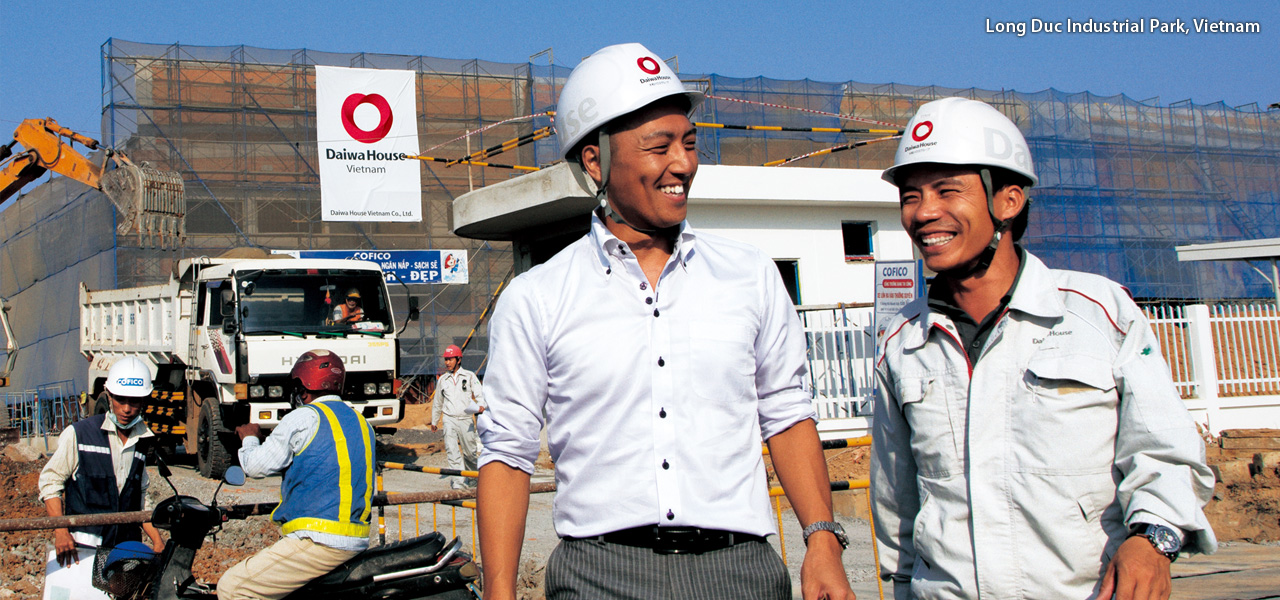
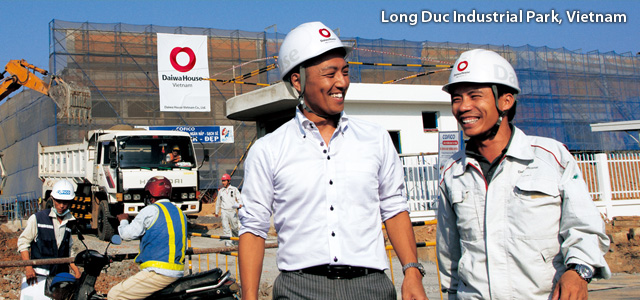

Exporting industrial parks to Southeast Asia
When a Japanese company is aiming to start operations in a foreign country, how reassuring it must be for the management to have a Japanese partner in that country on whom they can rely. Daiwa House Industry is currently engaged in developing large-scale industrial parks in Vietnam and Indonesia to act as bases for Japanese corporations that hope to expand their overseas business operations. Mr. Shinichi Chono serves as the leader of our Indonesia & Vietnam project, a role that requires him to come and go constantly between Japan and Southeast Asia.
On a certain day in 2011, Mr. Chono was told by Managing Executive Officer Tatsuya Urakawa, who was in overall charge of the project, to attend a business meeting with representatives of Sojitz Corporation, a sogo shosha (general trading company) that engages in business operations all over the world.
At the meeting, the Sojitz side proposed a joint project with Daiwa House to build an industrial park in Vietnam.
For a number of years, Daiwa House Industry had been looking for some way to launch overseas operations on its own account, but for Mr. Chono – who had been very busy at the Construction Division in the Daiwa House Tokyo Head Office – this opportunity to launch an overseas operation was completely unexpected. However, Sojitz Corporation's choice of Daiwa House as a business partner was not a random one. Even in Japan, very few companies are capable of handling business operations across the fields of real estate development, construction, and facility management. Daiwa House was chosen because it has such capabilities.
Mr. Chono realized that he could not let this chance slip. If Daiwa House Industry did not expand its business overseas, it would sacrifice its opportunity for future growth.
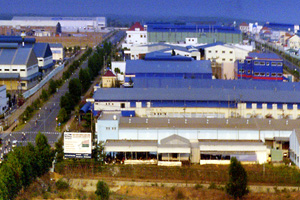
The Long Binh Techno Park (LOTECO), developed by Sojitz Corporation prior to the start of the Long Duc project
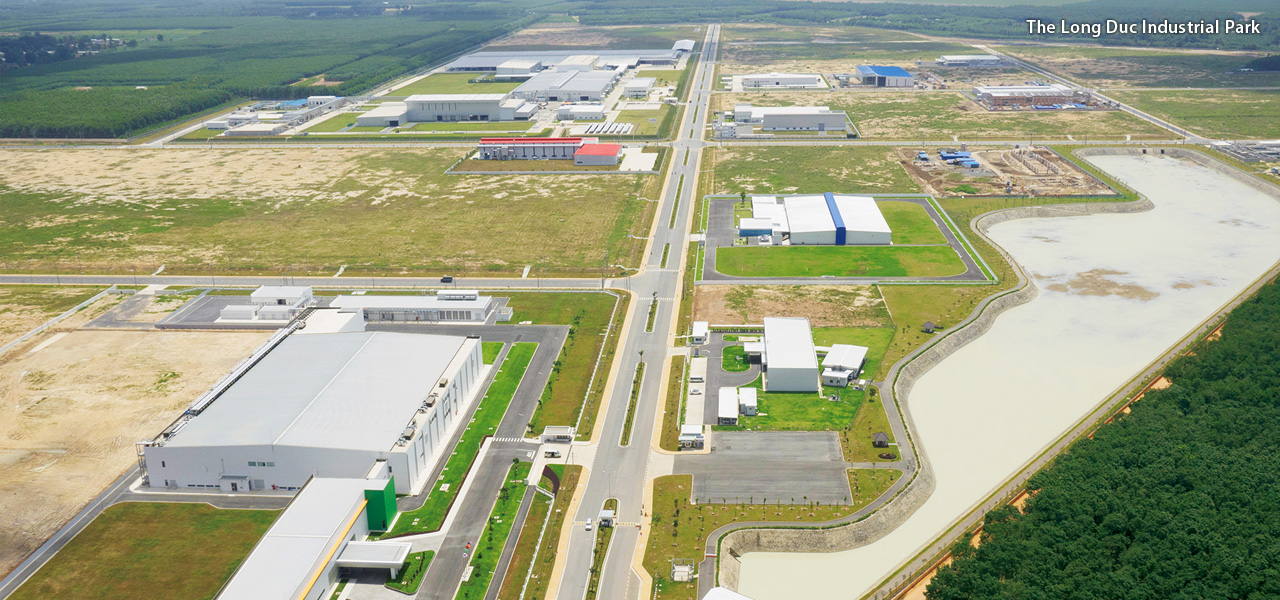
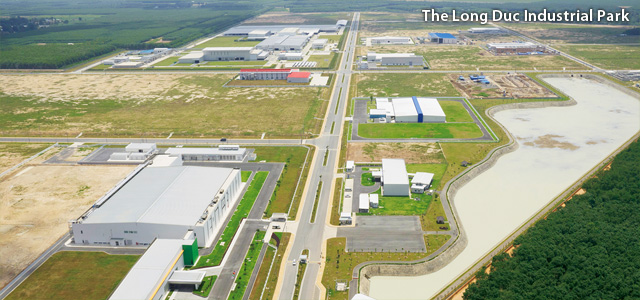

The ability to enlist people's cooperation
Only four months from that day, four companies – Daiwa House Industry, Sojitz Corporation, Kobelco Eco-Solutions Co., Ltd. (a manufacturer of environment-related plant), and Vietnamese import-export company Donafoods Co. – reached an agreement to establish the Long Duc Industrial Park in the suburbs of Vietnam's largest city, Ho Chi Minh City. The plans entailed the development of a site of 270 hectares, roughly 57 times the size of a large baseball park.
At around that time, an increasing number of Japanese companies were establishing production or logistics bases in Vietnam, where labor costs were considerably lower than in Japan, and local realtors were doing brisk business selling land for the development of industrial parks. The main obstacle was encountered at the next stage. One of Daiwa House Industry's main businesses is the undertaking of contracts for construction of commercial facilities, but in spite of this, having succeeded in attracting companies to the industrial park, when it came to gaining a contract for the construction of the actual factory, warehouse or whatever, Daiwa House's lack of experience in overseas construction projects told against them. For all the high-level technical expertise that Mr. Chono possesses, and notwithstanding his extensive experience in the Japanese market, he was unable to translate these factors into the actual receipt of orders.
"It was really hard" recounts Mr. Chono. "I was able to overcome those difficulties and get to where I am today thanks to the invaluable assistance I received from many different people." Mr. Chono succeeded in pushing the project forward, one step after another, with the cooperation of the three other companies and the help of his personal contacts within Daiwa House, as well as a number of outside specialists.
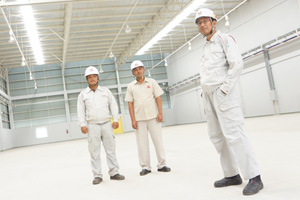
Three employees of Daiwa House Vietnam
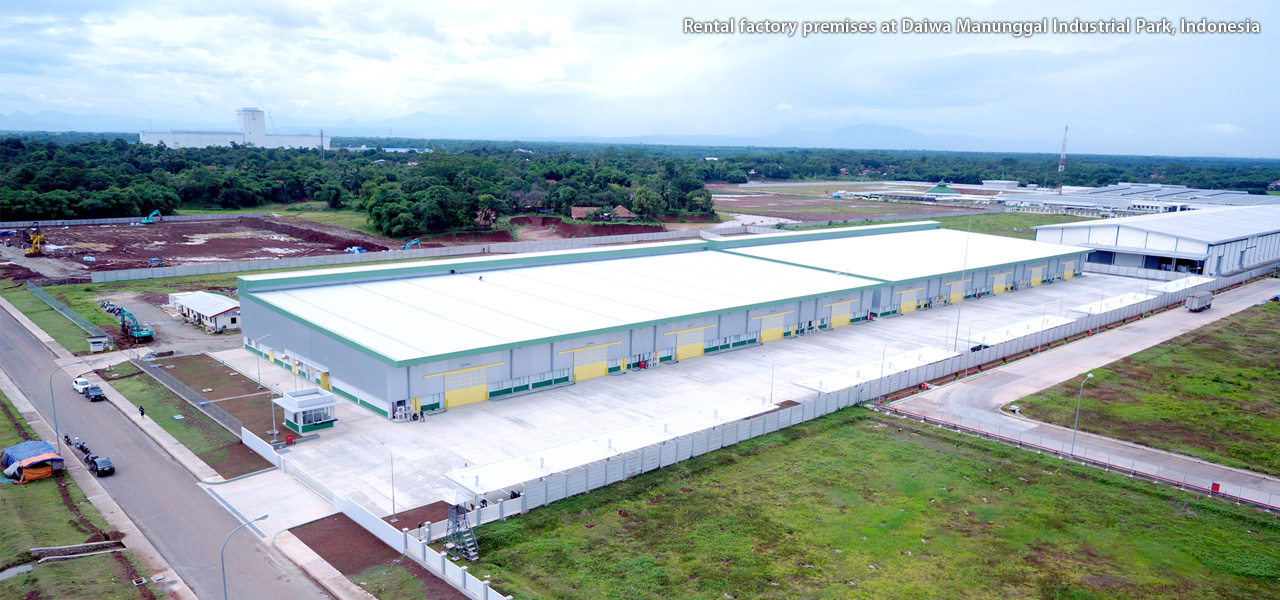
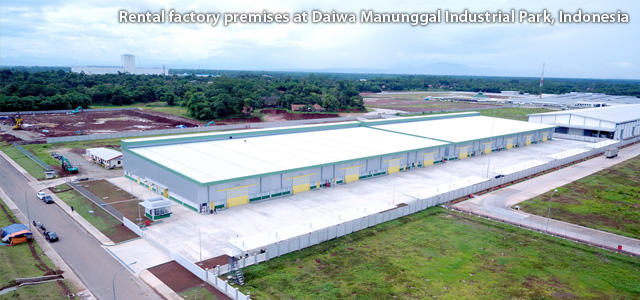

Becoming a much-needed presence
The Daiwa House Group has set up business operations in Indonesia, which was the world's fourth most populous country as of 2012. On a 1,350-ha site in the suburbs of Jakarta – the country's capital – joint development on the Daiwa Manunggal Industrial Park has been started by Daiwa House and local real estate developer Argo Manunggal Land Development.
Just as the project was getting underway, the Japanese economy was rocked by a sudden downturn in the yen's exchange rate, causing corporations to slow down the pace of their business expansion overseas. To avoid nipping its overseas operations in the bud, and to protect the jobs of their local staff, Daiwa House and its partners were forced to look for a business model that would ensure profitability whether the yen was strong or weak. As a first step, in its Vietnamese project Daiwa House introduced a new system of factory rentals, which allows companies to initiate overseas operations while holding down their initial investments.
In the Indonesian project, as demand for the creation of logistics infrastructure was seen to be rising, we commenced the development of a multi-tenant-type rental logistics center. Says Mr. Chono: "Contractual problems are encountered frequently in overseas markets, and the fact that a Japanese corporation like Daiwa House is involved in the project seems to be a major plus for prospective Japanese tenant companies – it puts their minds at rest." Our Indonesian project is also drawing favorable attention from overseas corporations, thanks to the use of our D Project system, a path-breaking business scheme that we have hitherto employed only in Japan. We are receiving a response from the market that tells us that Daiwa House and its overseas projects are playing an invaluable role.
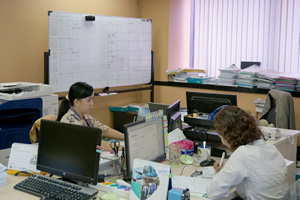
Daiwa House's local office at the industrial park



No giving up, no coming to a halt
The project is currently proceeding smoothly, but it has yet to attain the goals set by Mr. Chono. Of course, he knew it would not be a simple matter, but he is determined never to give up. What makes Mr. Chono keep on grinding away at his task, no matter how exhausting or frustrating it is?
It is the belief that he shares with his superiors and his subordinates in the Company: "No-one else in the Company can expand its operations overseas in the way that we're doing." They began with a tiny office that you could just about fit three desks into. Even now, it's just as difficult a business as it ever was, and so we must always maintain a positive mindset.
There's one more reason why Mr. Chono cannot allow himself to give up – the hardships that he has seen local people suffer.
"Many people here cannot find a job – they cannot even afford to eat enough. Every extra building or facility that we can construct around here, every business that we start up, will lead to additional jobs for local people. So there is no doubt that our operations are working to the advantage of this country. When I think about the hard lives these people lead, all the troubles I had in my job in Japan seem like a walk in the park." For Mr. Chono and everyone else involved, the experience of being thrust willy-nilly into the overseas work environment seems to have nurtured a venture spirit that gives them a global view of work and life. In that sense, when it comes to solving society's problems, the situation in which Mr. Chono and his small band of associates now find themselves is similar to that of the pioneers who founded and built up Daiwa House Industry.
According to Mr. Chono, they have only reached the first station on this long mountain climb, so to speak. Daiwa House Industry is destined to play an enormously greater role in the wider world, and that is why this is a mountain well worth climbing.
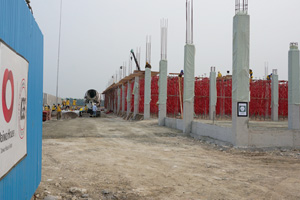
Factory construction site
* Information on the "Spirit of Hearts" is at the time of the coverage.
-
 "Tackling the Challenges of Carbon Neutrality"
"Tackling the Challenges of Carbon Neutrality"
-
 "Building Close Relationships with Our Customers"
"Building Close Relationships with Our Customers"
-
 "Transforming the Construction Sector with DX"
"Transforming the Construction Sector with DX"
-
 "Bringing Ever-More Joy to Travel in Japan"
"Bringing Ever-More Joy to Travel in Japan"
-
 "Regeneration" Arises from New Construction
"Regeneration" Arises from New Construction
-
 "An Enduring Spirit of Hospitality"
"An Enduring Spirit of Hospitality"
-
 "Collaborating with 16 creators invited from around the world"
"Collaborating with 16 creators invited from around the world"
-
 "Passing Down Hometown to Future Generations with Renewable Energy"
"Passing Down Hometown to Future Generations with Renewable Energy"
-
 "The twenty-first century will be wind, solar, and hydro"
"The twenty-first century will be wind, solar, and hydro"
-
 "Be a Pioneer in the Design Revolution"
"Be a Pioneer in the Design Revolution"
-
 "Building better places to live through partnership between the public and private sectors"
"Building better places to live through partnership between the public and private sectors"
-
 "Supporting the foundations of the nation"
"Supporting the foundations of the nation"
-
 "Continuing to work the rest of life"
"Continuing to work the rest of life"
-
 "Doing our best to support post-disaster reconstruction"
"Doing our best to support post-disaster reconstruction"
-
 "Defying common wisdom in housing construction"
"Defying common wisdom in housing construction"
-
 "Develop the American market!"
"Develop the American market!"
-
 "Exporting Japanese industrial parks"
"Exporting Japanese industrial parks"
-
 "Industrializing agriculture"
"Industrializing agriculture"

